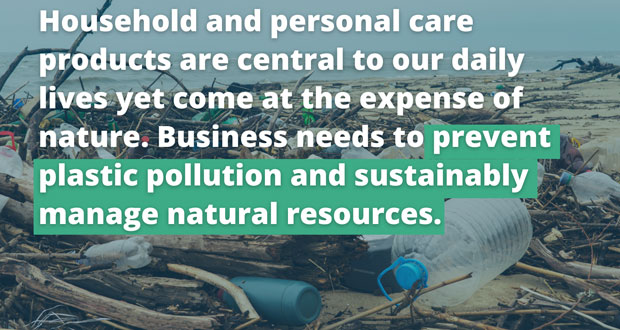The household and personal care sector could unlock $62bn of annual cost savings and revenue upside in a new nature-positive economy trajectory by 2030, according to recent guidance published by the World Economic Forum.
The ‘Nature Positive: Role of the Household and Personal Care Products Sector’ guidance showcases how businesses across the sector can take practical action to transform and innovate their operations and value chains to secure a nature-positive future.
The slogan of this year’s World Environment Day on June 5 is ‘Our land. Our future. We are #GenerationRestoration.’ This is a call to action for all stakeholders, including businesses, to recognise that although we cannot turn back time, we can work today to restore the Earth.
The guidance outlines five priority actions corporate leaders need to take to ensure the sector plays its part in halting and reversing nature loss by 2030 – the mission at the heart of the Biodiversity Plan, otherwise known as the Global Biodiversity Framework.
Household and personal care products companies need to:
- Improve water stewardship throughout the value chain.
- Source responsibly and replace feedstocks with sustainable bio-based or other renewable materials with careful analysis on trade-offs.
- Change customer behaviour on product use and disposal through education and transparency.
- Support nature conservation and restoration through investment in responsible business practices and Nature-based Solutions (NbS).
- Expand circularity, offer sustainable products and packaging and engage in collective action and policy advocacy.
Household and personal care products companies use significant amounts of water and other natural resources, cause land use change, pollution (especially plastics), and greenhouse gas emissions. Therefore, these actions are critical to mitigate their environmental impact. The sector generates approximately USD $700 billion in annual revenue, but without urgent action, it will come at the expense of nature.
In partnership with Oliver Wyman consultancy, the report showcases best practice and presents specific guidance on strategic ways forward.
Akanksha Khatri, Head of Nature and Biodiversity, World Economic Forum, said: “Investing in nature is more than just good risk management. Companies that take bold steps today towards a net-zero, nature-positive business model will undoubtedly enjoy competitive advantages. This will stem from more resilient and sustainable supply chains, a positive public image, innovative green products and greater support from the financial sector.”
Several companies are already implementing various corporate commitments to secure a nature-positive future, for example:
- Unilever has committed to protecting and regenerating 1.5 million hectares of land, forests and oceans by 2030.
- L’Occitane has partnered with Kering to launch a climate fund for nature to mobilize resources to protect and restore nature.
- Henkel seeks to achieve more than a 30% share of recycled plastic for all packaging of its consumer goods and to implement circular water use at key manufacturing sites by 2030.
Ulrike Sapiro, Chief Sustainability Officer, Henkel, said: “Collaboration and cooperation are essential if we are to prevent catastrophic ecosystem collapse. Each of our organisations must prioritise the actions outlined in this report and play our part in shaping an industry that not only fulfils our everyday needs but also secures a flourishing planet for generations to come.”
While progress is promising, it needs to accelerate. Without corrective action, nature-related risks will escalate, threatening profitability, and the planet, for a sector highly dependent on nature.





